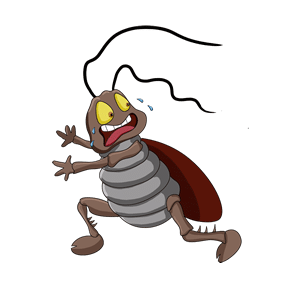Wasps are very important in the ecosystem. They are scavengers and predators. They also pollinate flowers and crops like tomatoes, fruits, and many other vegetables.
Wasps also have some negative effects on people. They can sting humans when they feel threatened or if they feel their nest is being threatened. The effects of a wasp sting allegy vary based on the species of wasp that stung you and how many times you were stung. Some people may have no reaction to a wasp sting while others may be allergic to the venom and experience life-threatening reactions.
Some species of wasps are parasites that lay their eggs on or inside other insects and larvae so that when the larva hatches it will eat its host alive from the inside out before emerging as an adult wasp through its host’s body wall.
Are Wasps Useful?
Yes, wasps are useful. They play an important role in the ecosystem as predators and pollinators.
- Wasps are voracious predators of other insects, such as caterpillars, flies, and mosquitoes. They help to keep these populations in check, which can benefit crops and gardens. For example, it has been estimated that social wasps in the UK capture an estimated 14 million kilograms of insect prey across the summer.
- Wasps are also important pollinators, visiting flowers to drink nectar. As they do so, they transfer pollen from flower to flower, helping to reproduce plants. Wasps are particularly important pollinators of crops such as figs and tomatoes.
In addition to their ecological benefits, wasps can also be beneficial to humans. For example, some species of wasps are used to control pests in agriculture.
Of course, wasps can also be a nuisance and can sting if they feel threatened. However, it is important to remember that they are not inherently aggressive and will only sting if they feel they are in danger.
Overall, wasps are a valuable part of the ecosystem and play an important role in our environment. While they may not be everyone’s favourite insect, they are an important part of the natural order of things.
Are Wasps Useful In The Garden?
Wasps are often viewed as pests, but they can also be beneficial to gardeners. Many varieties of wasp help with pollination and control pest insects that feed on crops.
The most common wasps in the garden include paper wasps and yellow jacket wasps. Paper wasps are reddish-brown with thin bodies and wings that have a white pattern. Yellow jackets are typically black and yellow, with black legs and antennae. They also have a distinctive “wasp waist” shape when viewed from behind.
Types Of Wasps In The Garden
There are several different types of wasp found in gardens, including paper wasps, yellow jackets, baldfaced hornets and ground hornets. Paper wasps build nests using wood pulp and saliva, while yellow jackets construct their nests out of chewed wood fibers or mud. Baldfaced hornets build large paper nests that resemble those of yellow jackets but do not have the characteristic “wasp waist” shape seen in other types of wasp. Ground wasps build their nests underground or beneath stones or logs in lawns or gardens.
Are Wasps Useful To The Environment?
Wasps are very useful to the environment. They are predators and they help to keep down the numbers of other insects. As a result, wasps are a vital part of the environment, especially in agricultural areas.
Wasps are also very important pollinators for many plants that grow in both agricultural and urban areas. Without wasps, many plants would not be able to reproduce and therefore would not exist at all.
As well as this, wasps are also great for eating various other insects that can damage crops or spread diseases. This is particularly true when it comes to caterpillars that can cause problems for farmers growing vegetables and fruit trees.
Reasons Why Wasps Are Useful To The Environment
Their habit of taking over our homes in the summer is a nuisance and they can be a danger to our children, but it’s important to bear in mind that wasps are actually doing us a lot of good. The insects are the unsung heroes of our gardens – they prey on pests that would otherwise destroy crops and plants. They also help to pollinate flowers and plants and produce honey.
But experts warn that wasp numbers are declining rapidly – due to pesticides and changes in land use. And the consequences could be severe for farmers, gardeners and wildlife.
However, this doesn’t mean we want them intruding on our homes, so it is up to a wasp removal expert to deter them away from your property. This is where Eliminate Solutions can help. We are Scotland’s #1 wasp removal company covering most of central Scotland and North West England.
If you need help managing a wasps nest, call Eliminate Ltd. We offer wasp nest removal throughout the UK and are highly trained to eradicate nests in commercial and domestic properties. If you need effective wasp removal in Manchester, call us today.



